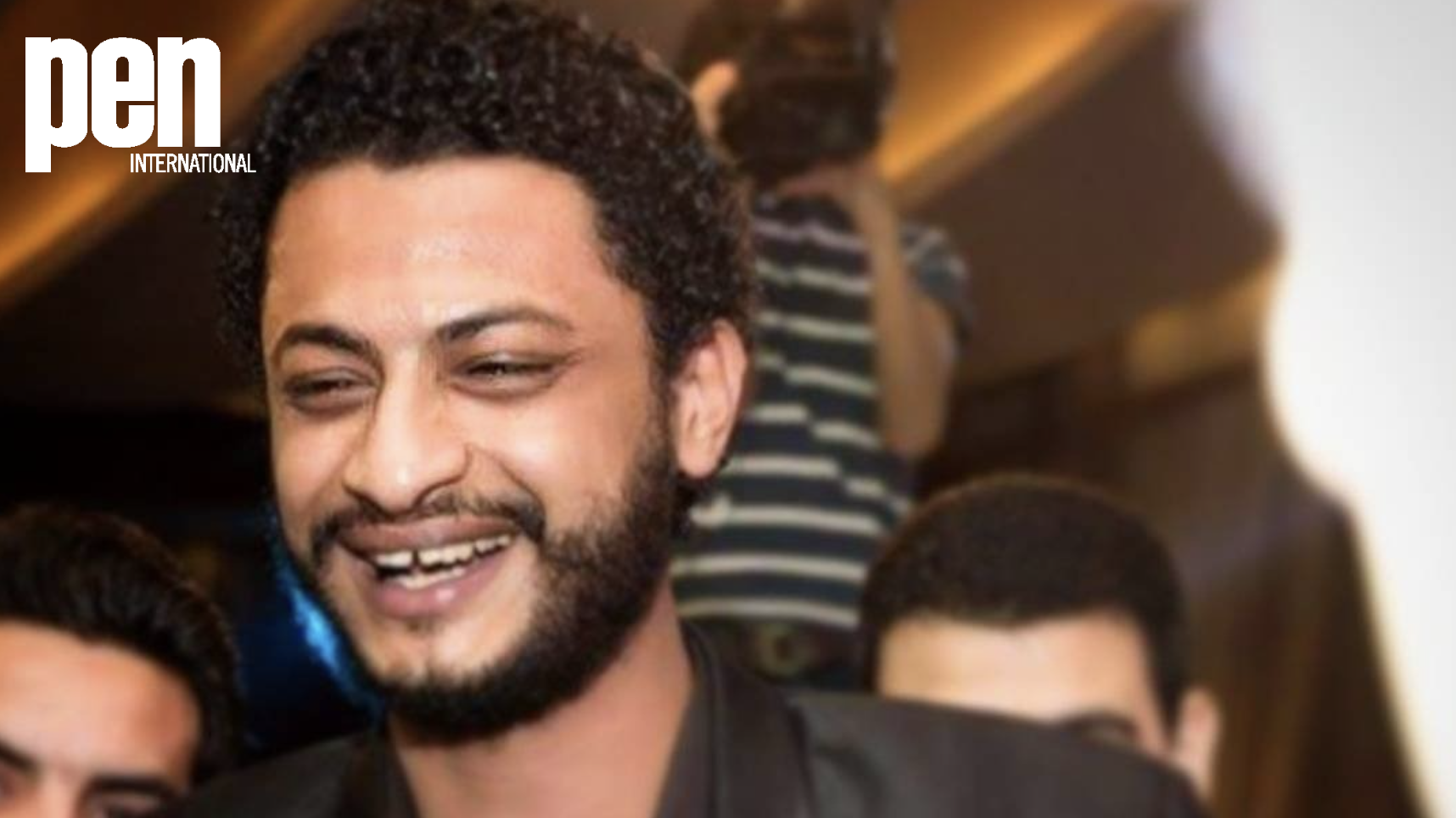Egypt: Poet Galal El-Behairy starts a hunger strike while suffering from a tumour
Image Credit: Family of El-Behairy
‘Egyptian authorities have systematically denied prisoners of conscience access to adequate medical care to increase their suffering and punish them for their views. They intentionally deny them access to reading and writing materials to isolate and further silence any attempt to reveal the horrible conditions inside Egyptian prisons. We are horrified to see a talented young poet like Galal El-Behairy being tormented for his poems and lyrics. He should have never been in prison for one moment, and we will continue to campaign for his immediate release,’ said Burhan Sonmez, President of PEN International.
10 July 2025: PEN International is outraged to learn that arbitrarily detained Egyptian poet Galal El-Behairy has been denied access to reading and writing materials and medical care, despite suffering from a tumour in prison. The organisation holds Egyptian authorities fully responsible for El-Behairy’s declining physical and mental health and calls for his immediate and unconditional release, ensuring that he has adequate access to medical care, reading and writing materials pending his release.
PEN International learned that award-winning Egyptian poet and lyricist Galal El-Behairy, who has been incarcerated for over seven years, commenced a hunger strike on 16 June 2025, as authorities in Badr 1 Prison have continually denied his access to reading and writing materials and vital medical care. According to his family, El-Behairy has suffered from a tumour inside his jaw since last year, which impedes his ability to swallow. Despite his urgent need for medical intervention, prison authorities have repeatedly ignored his requests to receive adequate medical care.
The prison authorities have also continued to block his access to books since March 2025, while also refusing to allow him access to writing materials for almost two years. In March 2025, prison authorities refused to deliver three novels that his family brought during an earlier visit and returned the books to them. Furthermore, on 7 July 2025, authorities refused to allow El-Behairy access to a warm water bag that his family had brought to alleviate his back pain.
In December 2024, PEN International condemned threats of torture and invasive body searches of El-Behairy’s family members, who were suspected of receiving messages from Galal during the visit. PEN International has frequently raised concerns about El-Behairy’s physical and mental health. In addition to the tumour, he is reportedly suffering from heart issues, high blood pressure, joint and back pain. He also suffers from acute depression due to his indefinite arbitrary detention and experience of torture and ill-treatment in custody, which pushed him to attempt to commit suicide in September 2023.
Galal El-Behairy has previously gone through several hunger strikes in protest over his arbitrary detention, which has significantly, along with torture and deplorable detention conditions, contributed to his declining health.
Background
Arrested in March 2018, award-winning poet Galal El-Behairy has continued to be held without trial despite fully serving an unjust three-year sentence followed by two years in arbitrary pre-trial detention. El-Behairy was sentenced to three years in prison by a military court following an unfair trial in relation to his poetry collection, خير نسوان الأرض (The Finest Women on Earth), which the court deemed insulting to the Egyptian military. In July 2021, after his sentence expired, he was subjected to enforced disappearance for three weeks before being newly charged with ‘disseminating false news’ and ‘joining a terrorist group’ by the Supreme State Security Prosecution (SSSP). He exceeded the maximum legal limit of pre-trial detention without a trial on 5 September 2023; however, Egyptian authorities continue to detain him arbitrarily.
The human rights crisis in Egypt has significantly worsened since President Al-Sisi seized power in 2014, as authorities systematically punished any public or perceived dissent and severely repressed the rights to peaceful assembly, association, and freedom of expression. Scores of journalists, human rights defenders, activists, and writers have been arbitrarily detained for prolonged periods without trial and face trumped-up charges solely concerning their work or critical views. The authorities have systematically targeted them through repressive tactics such as judicial harassment, smear campaigns, threats, physical assaults, unfair trials, and travel bans. PEN International has documented several cases of writers imprisoned for their expression, including British-Egyptian writer Alaa Abd El-Fattah, cartoonist and translator Ashraf Omar, and Egyptian poet Galal El-Behairy.
In 2025, Egyptian President Abdel Fattah Al-Sisi issued two presidential pardons, the first coinciding with Sinai Liberation Day and Eid al-Fitr in March, and the second in May ahead of Eid Al-Adha. Both pardons have notably excluded prisoners of conscience, signalling a disturbing reluctance by the Egyptian authorities to ease their onslaught on freedom of expression.
Note to editors:
For more information, please contact Mina Thabet, Head of the MENA Region, email: [email protected]
For media queries, please contact Sabrina Tucci, Communications and Campaigns Manager at PEN International: [email protected]

